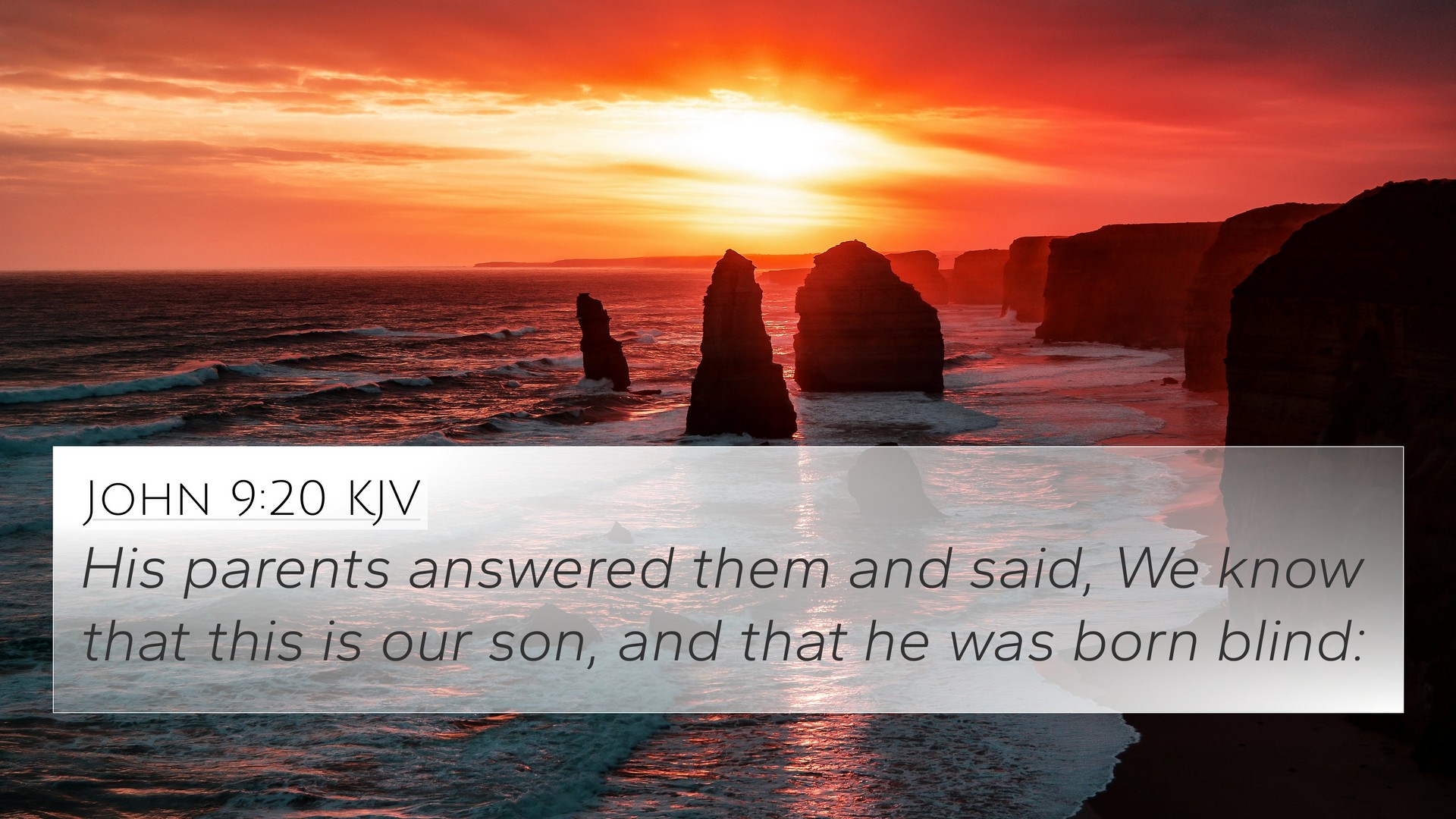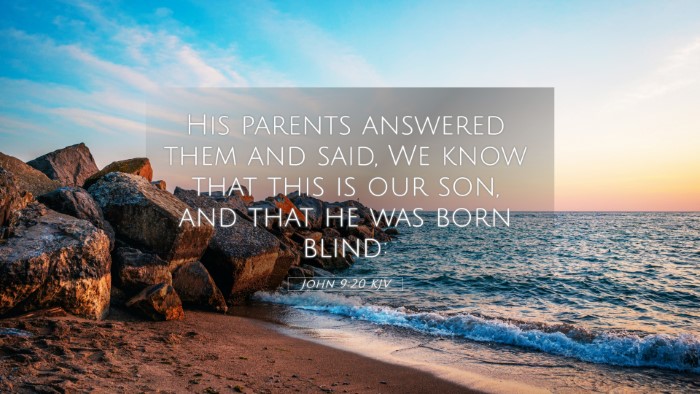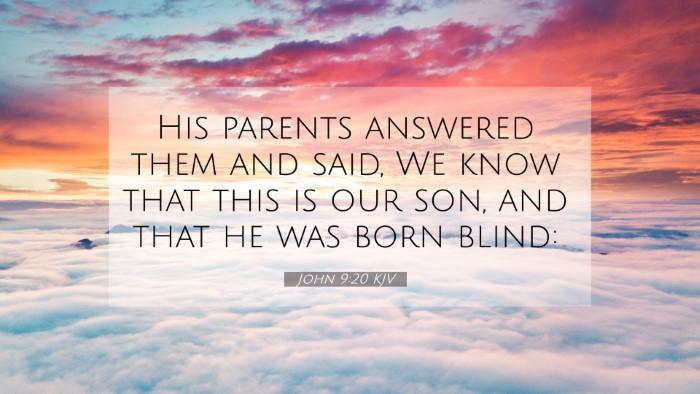Understanding John 9:20
Bible Verse: John 9:20 - "His parents answered them and said, 'We know that this is our son, and that he was born blind.'
Verse Overview
In this verse from the Gospel of John, the parents of a man who was miraculously healed of blindness testify to the miraculous nature of their son's condition. Their response highlights not only their awareness of the miracle but also their clarity regarding their son’s past affliction.
Combined Insights from Public Domain Commentaries
The following insights synthesize interpretations from Matthew Henry, Albert Barnes, and Adam Clarke:
- Matthew Henry: Henry emphasizes the parents' acknowledgment of their son’s condition prior to the miraculous healing. He points out the significance of their response as they display both awareness and reluctance, indicating fear of persecution from the religious authorities.
- Albert Barnes: Barnes highlights that this statement from the parents serves both as an affirmation of their son's miraculous healing and as a strategic avoidance of the controversy surrounding Jesus' identity. Their straightforward answer serves to shift focus back to the evidence of the miracle rather than engage in theological disputes.
- Adam Clarke: Clarke elaborates on the emotional weight of the parents' testimony, conveying the mix of pride and hesitation. They support their son while also recognizing the danger their statements may pose, considering the increasing hostility towards Jesus from the Jewish leaders.
Thematic Connections
This verse opens a dialogue about witness and testimony within the Christian faith, allowing for a deeper understanding through inter-Biblical dialogue. Here, we can draw several connections with other scripture passages:
- John 9:1-7: The context of the healing illustrates the power of Jesus’ miracles and His divine authority.
- Matthew 10:32-33: This passage speaks to confessing Christ before others, relevant to the parents' hesitation in openly acknowledging Jesus.
- John 8:12: The theme of Jesus as the light of the world contrasts with the darkness of disbelief represented by some religious leaders.
- 1 John 1:5: The declaration of God being light parallels the miracle of the blind man receiving sight, symbolizing spiritual illumination.
- Luke 12:8-9: The need for courage to confess faith in Jesus is reflected in the parents’ fear of repercussions.
- Acts 4:19-20: This emphasizes the importance of speaking what they have seen and heard, akin to the healing experience witnessed by the parents.
- Proverbs 28:1: This speaks to the boldness of the righteous in contrast to the fear pervasive among the wicked, applicable to the parents’ stance.
Cross-Referencing Biblical Texts
Utilizing cross-references enriches the understanding of John 9:20 by linking similar themes of faith, acknowledgment of Jesus’ works, and the interplay of fear and belief. These connections can assist in personal Bible study, sermon preparation, and theological interpretation. Here are some tools and practices for effective cross-referencing:
- Use a Bible concordance to locate related verses and study their contexts.
- Explore a cross-reference Bible study guide that delineates connections between Old and New Testament themes.
- Engage in cross-referencing Bible study methods to uncover comparative themes.
- Implement a Bible cross-reference system for systematic study and reference.
Bible Verse Parallels
When considering verses related to John 9:20, you may find other passages that reinforce the nature of testimony and healing, such as:
- Mark 5:19: The healed man is instructed to share what the Lord has done as a witness.
- John 4:39: The testimony of the Samaritan woman leads many to believe in Jesus.
- Revelation 12:11: Believers overcome through the blood of the Lamb and the word of their testimony, emphasizing the power of personal witness.
Conclusion
The exploration of John 9:20 reveals deep theological insights into the fear and faith dynamic that plays out in the lives of the blind man's parents. Their testimony embodies the tension between acknowledging a work of God and facing the repercussions of societal pressures. This verse, alongside its cross-references, invites believers to consider their own witness of Jesus' transformative power in their lives.


